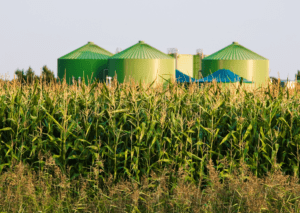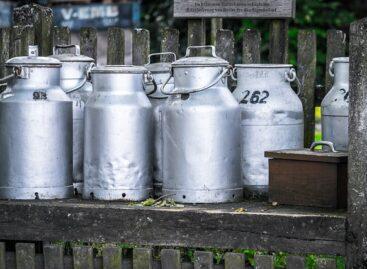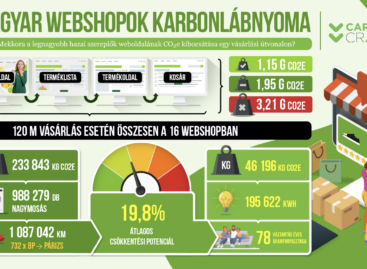The future of biogas is also our future
The European Union wants to increase the production and use of biogas in the region 10 times by 2030, which also holds opportunities and possibilities for Hungary. Biogas currently represents 0.9% of the domestic energy mix, which could easily be ten times higher with some intention and organization, but 15% is not an unattainable goal.
 If the country were to use all the materials that are suitable for biogas production, then under the current conditions – as a theoretical value, according to the calculations of the Institute of Agricultural Economics – up to a third of all domestic natural gas consumption could be produced – Assaf Onn, the head of Anaergia, pointed out the essence of the technology. Anaergia, a world leader in the construction of biogas plants, is managed by Marny Investissement S.A., which also has several investments in Hungary.
If the country were to use all the materials that are suitable for biogas production, then under the current conditions – as a theoretical value, according to the calculations of the Institute of Agricultural Economics – up to a third of all domestic natural gas consumption could be produced – Assaf Onn, the head of Anaergia, pointed out the essence of the technology. Anaergia, a world leader in the construction of biogas plants, is managed by Marny Investissement S.A., which also has several investments in Hungary.
Biogas can be used for everything that natural gas can be used for, including power generation, direct propulsion of vehicles, and can also be fed into the gas pipeline network, reducing Hungary’s much-discussed energy exposure.
It is very important that it is completely green, renewable and environmentally friendly energy and production, which not only does not burden the environment – its carbon footprint is negative, but also does not cause any odor pollution with today’s technology. Anaergia’s technology, by preventing the release of methane, a strong greenhouse gas, from decomposing organic waste in landfills, contributes to carbon neutrality and mitigates global warming. At the end of the process, an odorless, but highly nutritious, organic fertilizer remains, which, when applied to the land, has proven to have better parameters than the direct application of animal manure. It enriches the soil and accelerates the formation of humus, thus also serving sustainable farming.
Related news
Hungarian startup measures carbon footprint of largest domestic webshops
🎧 Hallgasd a cikket: Lejátszás Szünet Folytatás Leállítás Nyelv: Auto…
Read more >Related news
The Store of the Future opens again at the SIRHA Budapest exhibition! (Part 1)
🎧 Hallgasd a cikket: Lejátszás Szünet Folytatás Leállítás Nyelv: Auto…
Read more >The impact of the forint exchange rate on GDP growth
🎧 Hallgasd a cikket: Lejátszás Szünet Folytatás Leállítás Nyelv: Auto…
Read more >Cheese-cocoa-peach jam: these are the most popular cookie flavors
🎧 Hallgasd a cikket: Lejátszás Szünet Folytatás Leállítás Nyelv: Auto…
Read more >








